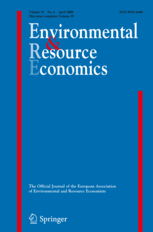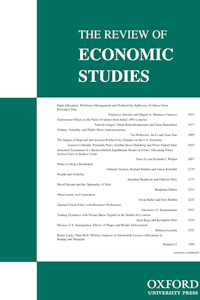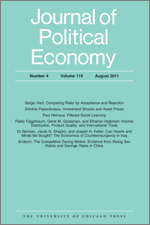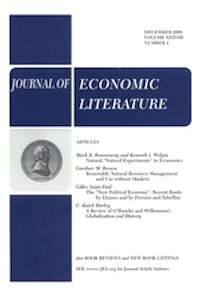
Gatti, J. R. J., Goeschl, T., Groom, B. and Swanson, T.
The biodiversity bargaining problem
Environmental and Resource Economics
Vol. 48(4) pp. 609-628 (2011)
Abstract: We employ cooperative bargaining theory and Nash’s ‘rational threats’ idea to cast light on the biodiversity bargaining problem. The problem of global environmental negotiations is argued to be of the nature of a bargaining problem, in which bargainers must agree on the distribution of cooperative surplus in order to move to the bargaining frontier. We discuss the importance of both efficiency (bargaining frontier) and fairness (recognition of characteristics of bargainers) in the choice of the appropriate contract. We show that the incremental cost contract, used to resolve the biodiversity bargaining problem, is of the form of an extreme point contract that fails to recognise the contributions of the South to the production of cooperative surplus. A rational response to such a contract is the use of threats of biodiversity destruction. Contracts must evince both efficiency and fairness in order to represent lasting solutions.
JEL Codes: Q15, Q16, Q21, O13, O34
Author links: Rupert Gatti
Publisher's Link: http://link.springer.com/article/10.1007/s10640-010-9416-z ![]()




